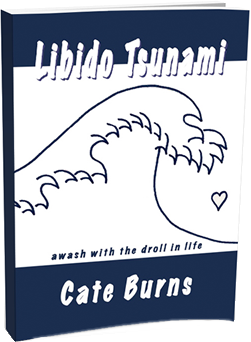Is It Okay to Run Out of Some Groceries?

My friend, Susan’s daughter-in-law, Josie, doesn’t keep up with grocery shopping. At mealtimes, she improvises with whatever’s in the cupboards. Her two small children are healthy and happy. They eat a few bites, declare themselves satisfied and are excused from the dinner table. An hour later, they run to the fridge for a few more bites. Josie is raising a family of grazers, who, like her, are athletic and thin.
Susan and I both grew up with families that sat and ate our meals until we were full. At my home, we heard orders to “clean our plates.” My siblings and I endured punishments for leaving food uneaten: allowances stopped, extra chores assigned. Not eating everything seemed to be an insult to my hardworking Dad, the provider, and to my Mom, who prepared the food.
My parents grew up during the depression and were young adults during World War II. They must have been deeply imbued with a fear of scarcity. At their frequent parties, they celebrated their bounty of food and drink, repeating the refrain, “Have more, there’s plenty.”
After a recent phone call with Susan, I realized how attached I still am to my parents’ old rules. I must always have extra food on hand. I eat until I’m full, sometimes stuffed. I’d love to be free of anxiety about food shortages.
Growing up on one acre of land, much of our family life revolved around food accumulation; weeding Dad’s large backyard garden, picking fruit from our orchard, fetching eggs from the henhouse, slaughtering chickens, helping Mom preserve the extra for winter – making jam from fruit and canning vegetables. Mom crafted hand soap from bacon grease and lye. Dad fermented beer in the basement and brought home fish he caught in nearby lakes and streams. We put so much work into our food, we felt obliged to eat it all: this seemed to be the unspoken family contract.
Lucky for me, lack of food and its associated fears are no longer relevant to my life. And yet, I continue to eat every morsel on my plate, still enslaved to the old concepts embedded in childhood. Nowadays, I trick myself by using smaller plates, so I’ll eat less. I’m a normal weight, yet I’d like to be free of compulsions to eat food I don’t need, to honor my body by giving it what is best for my health.
I have friends whose ancestry is Okinawan. They practice a cultural habit called hara hachi bu me: eating “just enough.” This custom originated with Confucious (born 551 BCE) in China. He recommended that, when eating, keep the “stomach eight parts full out of ten parts total.” I try to be aware when I reach the hara hachi bu me state at 80% full, and get up from the table, even if food is left on my plate. Actually, I’m lucky if I can catch myself at 90% fullness. It helps if I have a busy schedule and shift my attention away from “cleaning my plate” to another compelling activity. This new way of eating is a revolution for me and I don’t always succeed.
My discussion with Susan still resonates. I want to explore grazing further, both with the amounts I eat and with the varieties of food I keep on my kitchen shelves. Perhaps I would be more relaxed about food if I didn’t buy every grocery item I “need” right away, allowing certain items to lapse and substitute others when I cook. Two days before I talked to Susan, I noticed my soy sauce hovered toward the bottom of the bottle; perhaps an inch remained. That week, we had torrential rainstorms with thunder and lightning all week, weather I avoided driving in. Yet, each day, although I could easily substitute another spice or sauce if need be, I felt an urgency to brave the storm just to get that single item.
I didn’t impulse shop for soy sauce during the tempests, thus, I experienced a minor triumph. Once the hard rains stopped, I waited until five or six items accumulated on my list before I went to the grocery store. I aspire to allow myself to run out of food items, becoming relaxed about grazing on whatever I find in the cupboard. And I hope to create a more flexible, calm and compulsion-free connection to food.

Cate Burns is the author of Libido Tsunami: Awash with the Droll in Life, in which she unearths the ludicrous in the emotional live traps surrounding us — in families, friends and disastrous romances. Get it on Amazon today.
